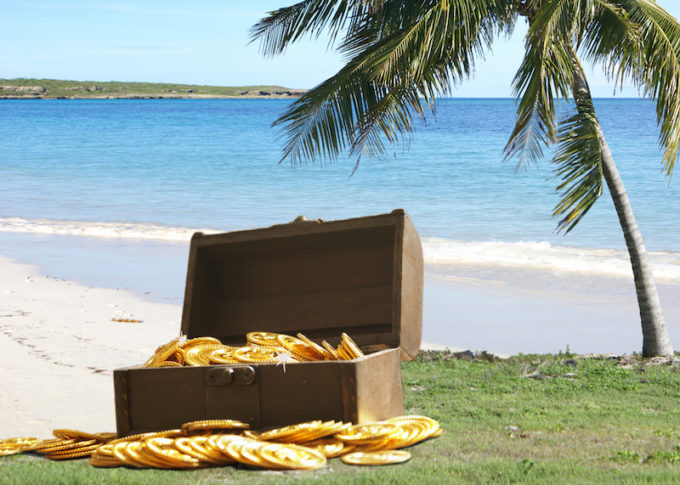Florida’s Escheat Process and The Treasure Hunt

Occasionally, we receive questions from clients about Florida’s escheat process. The primary concern clients have is that the State of Florida – rather than the clients’ children and other heirs – will receive the clients’ estate when the clients die. Happily, this is generally not the case.
What is the Escheat Process?
Simply put, the escheat process is designed to find a home for bank accounts and other assets left by a decedent when there is no one else to receive the assets. Escheat avoids the uncertainty of ‘who owns this?’ that might otherwise occur.
Escheat is intended as a last resort, to provide an answer when there is no other answer. Escheat is not intended to frustrate a decedent’s estate plan or to give the State of Florida a way to take money from a decedent who is survived by family or other heirs.
The escheat issue arises when a decedent leaves one or more assets for which there are no living, identified, and found heirs to receive the assets. Turning that sentence around, an heir may inherit if the heir (i) survives the decedent, (ii) is identified in the decedent’s Will, Trust, Florida intestacy law, or otherwise, and (iii) is found.
Escheat issues can arise whether or not the decedent left a Will, a Trust, or other estate plan. Escheat issues can also arise with jointly-owned real property, bank accounts, and other assets, as well as IRAs, life insurance policies, and other assets with beneficiary designations. In each case, it is possible to name an individual to receive the asset, but the individual will not inherit unless the individual survives the decedent, is identified, and is found.
In the typical situation, heirs are known, identified, and found rather easily. These heirs will receive the decedent’s estate (after payment of creditor and other required expenses). On the other hand, if heirs are not identified and found, escheat may occur.
How Does Florida’s Escheat Process Work?
The Florida statute that governs escheat is Section 732.107. This statute says: “When a person dies leaving an estate without being survived by any person entitled to a part of it, that part shall escheat to the State.”
For example, suppose that Mr. Smith left a Will saying that his estate should pass to his wife if she survived him, otherwise to his children. So long as Mr. Smith was survived by his wife or children, there is no escheat issue.
But what happens if the entire Smith family died in a common disaster, such as a plane accident? In that case, none of the heirs named in Mr. Smith’s Will would survive to inherit his estate. Nonetheless, Florida law still provides a solution that does not require escheat. In this case, the law directs that Mr. Smith’s parents, siblings, nieces and nephews, grandparents, cousins, other family, and certain others may inherit – even though they were not named in his Will.
But what happens if none of these other individuals survive Mr. Smith? That is the time when the State of Florida has an interest in Mr. Smith’s estate through the escheat process. As you may see, escheat truly is intended to be a last resort.
Note that the same result occurs if there are heirs to the decedent’s estate, but the heirs cannot be found. In the above example, Mr. Smith may have a sister whom he had not seen for 20 years before his death. His sister might have a legitimate claim to his estate, but she will not be able to assert the claim if she cannot be found.
When family members are known but cannot be found, there is a legal notice procedure to be followed. After the required notice is given, the estate may escheat to the State of Florida.
Once funds have escheated to the State of Florida, there is a 10-year period of time for anyone with a valid claim to collect the funds. That means that a lost or unknown heir of Mr. Smith may file a claim for the funds. If the claim is legitimate, the State will pay the funds (without interest, which is retained by the State) to the heir.
If no claim is filed within the 10-year period of time, the opportunity to file a claim is lost forever. That means the State of Florida keeps the escheated funds forever. In Florida, escheated funds (and interest) are retained as part of the State School Fund.
The Treasure Hunt.
Individuals who believe they may be entitled to escheated funds – or individuals who are just curious – may check the Florida Unclaimed Property website, located at www.fltreasurehunt.org.
By running a simple search on this website, anyone may learn if they are entitled to funds received by the State of Florida through the escheat process. The website is well designed and is user friendly.
After running a search, any individual who believes they have a claim for escheated funds may file the claim through the website (the instructions are provided). In most cases, the individual filing a claim will also need to obtain a court order from the applicable probate court to receive the funds.


















